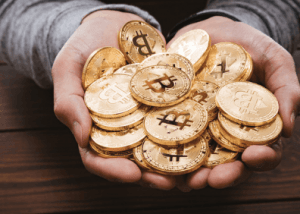
If you're new to the world of cryptocurrency, you'll no doubt have found that there's a whole lot of jargon and technical terminology to try and wrap your head around. Two terms that can be the source of much confusion are "coin" and "token", especially as they're often used to refer to the same things.
But technically speaking, there is one key differentiation between the two.
What is the main difference between crypto coins and tokens?
The one key difference between coins and tokens is that coins are the native currency of a particular crypto blockchain or network, while tokens are additional coins that are hosted on another blockchain.
For example, ETH is the native coin of the Ethereum network, while SHIB (Shiba Inu) is a token that was created on the Ethereum network.
What is a crypto coin?
In general terms, a cryptocurrency coin is just that – an encrypted digital currency meant to be used as a form of payment. A coin is a unit of value that operates on its own blockchain, independently of any other platform. It can be used to store value and pay for services, in much the same way that you would use physical money.
Bitcoin (BTC) is easily the best-known cryptocurrency coin around the world, but it’s far from the only coin available. In fact, there are thousands of crypto coins in existence. You may see many of these other coins referred to as altcoins, an abbreviation of alternative coins, simply because they offer an alternative to Bitcoin.
Some altcoins are a fork of Bitcoin and were developed using Bitcoin’s open-source protocol. Examples include Litecoin (LTC) and Dogecoin (DOGE).
However, there’s also a long list of other altcoins that haven’t been derived from the Bitcoin protocol and have instead created their own blockchain and protocol. Some well-known examples include Ethereum (ETH), Ripple (XRP) and Cardano (ADA).
What is a crypto token?
Tokens are used to represent digital assets that are fungible and tradeable, including everything from commodities to voting rights. However, rather than operating on their own blockchain, tokens are hosted by another platform, such as Ethereum.
While tokens are also a medium of exchange, they offer functionality above and beyond that of coins. Tokens give their holders the ability to take part in some kind of activity – for example, if you want to bet on the outcome of future events through decentralised prediction market Augur, you’ll need to use REP, the Augur platform’s native cryptocurrency token. Tokens can also offer value to buyers, for example through buybacks.
Tokens are usually created and distributed to the general public through Initial Coin Offerings (ICOs), which are a form of crowdfunding. Some of the best-known crypto tokens include EOS (EOS), Tron (TRX) and OMG Network (OMG), with Ethereum being the most popular platform for token development.
However, there are also plenty of other platforms which tokens can be built upon, including Omni, NEO, Waves and Qtum.
Must read: Coins vs tokens
Coins are standalone cryptocurrencies based on their own blockchain. Tokens are built and hosted on existing blockchains.

Explore more coins and tokens
Find all coin and token profiles, news and history to get you started with crypto trading and investing.


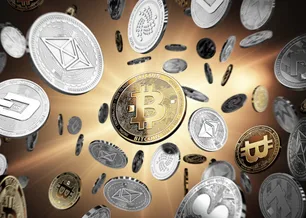
Learn how and where to buy crypto coins and tokens
Learn how and where to buy cryptocurrency by following our simple step-by-step guides and comparing 30+ crypto exchanges.
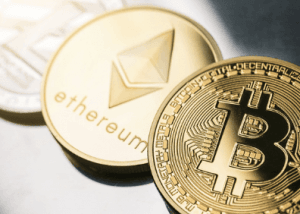
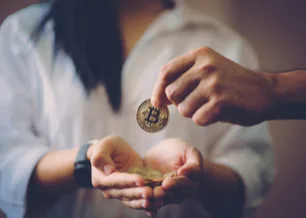
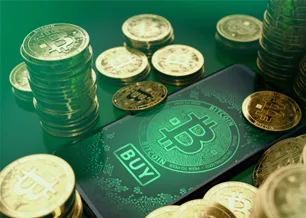
Get an expert outlook on the crypto market
Get an expert outlook with our coin and token price predictions, forecasts and analysis reports.

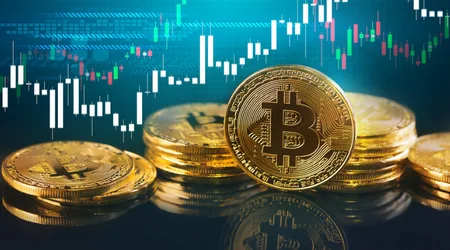
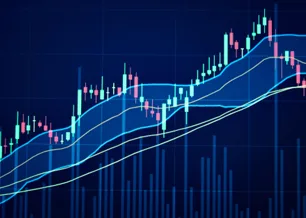
Ask a question
Read more on Coins
-
How to buy () in Australia
This guide provides step-by-step instructions on how to buy , lists some exchanges where you can get it and provides daily price data on .
-
How to buy () in Australia
This guide provides step-by-step instructions on how to buy , lists some exchanges where you can get it and provides daily price data on .
-
How to buy () in Australia
This guide provides step-by-step instructions on how to buy , lists some exchanges where you can get it and provides daily price data on .
-
How to buy Hedera Hashgraph (HBAR) in Australia
This guide provides step-by-step instructions on how to buy Hedera, lists some exchanges where you can get it and provides daily price data on HBAR.
-
Binance Coin (BNB) Price Prediction 2025
A panel of industry specialists give us their predictions on the price of Binance Coin to 2035.
-
How to buy XRP (Ripple) in Australia in 2025
The easiest way to buy XRP in Australia is from a cryptocurrency exchange. Read our guide for a simple explanation of how to get started.
-
How to buy Binance Coin (BNB) in Australia
Learn how to buy Binance Coin in Australia with our simple step-by-step guide and tips on what to know before you get started.
-
How to buy Cardano (ADA) in Australia
Learn how to buy Cardano in Australia with our simple step-by-step guide and tips on what to know before you get started.
-
How to buy Litecoin (LTC) in Australia
Learn how to buy Litecoin in Australia with our simple step-by-step guide and tips on what to know before you get started.
